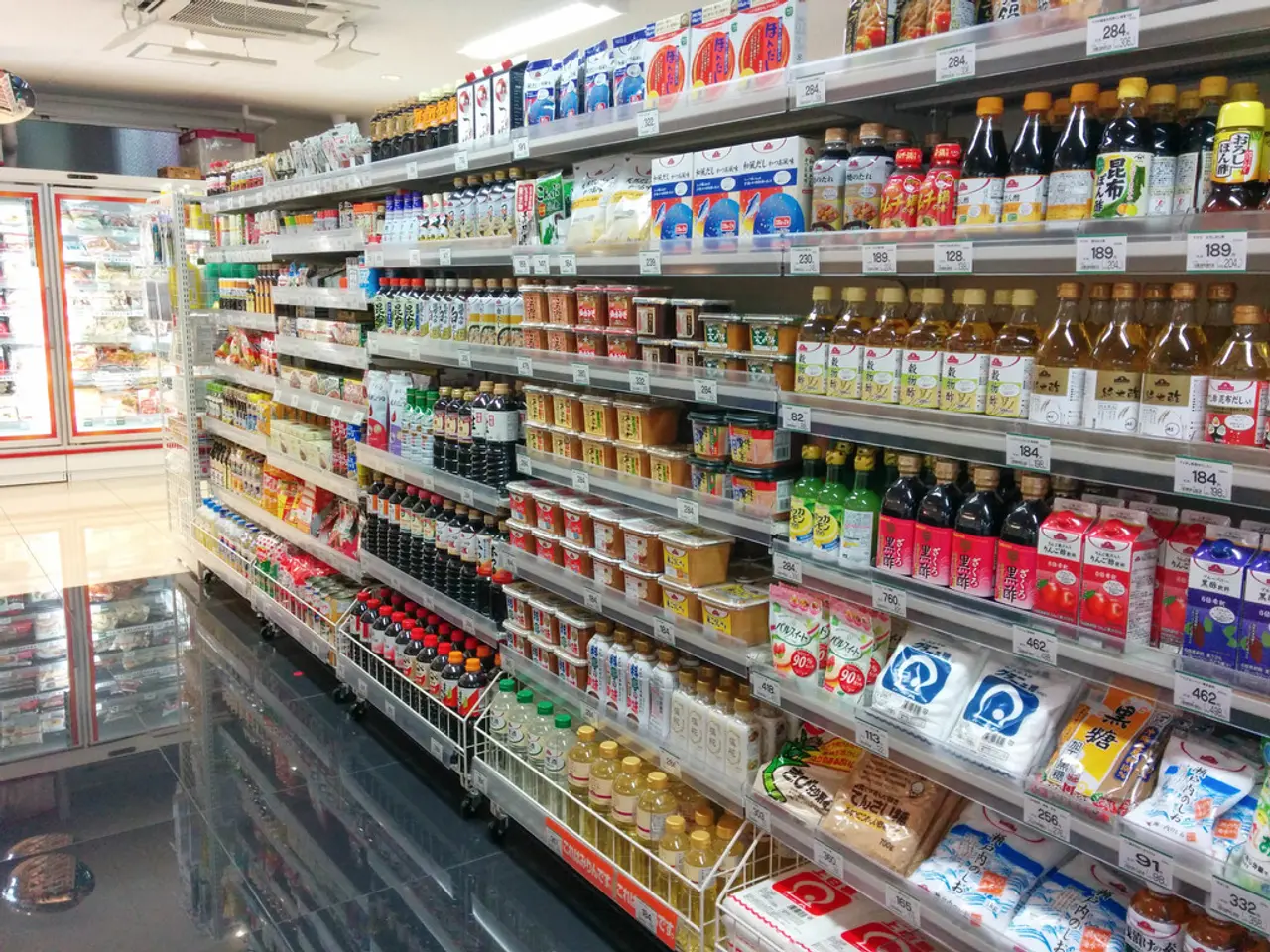Potential impact of Trump's tariffs leading to an unprecedented spike in inflation rates.
Unleashing Economic Turmoil: The Unyielding Impact of Donald Trump's Tariffs
Investors have been reeling from a stormy market lately, thanks to President Donald Trump's "Liberation Day" tariffs. These tariffs have sparked a major sell-off, with investors fretting at the thought of falling company earnings and broader economic downfall.
Take a gander at inflation — in particular, how the US inflation picture might be shifting. Economists at Goldman Sachs assert that a higher average tariff rate initially triggers a rise in core US inflation by approximately 0.1 percentage points for every added percentage point.
In light of recent developments, the overall US effective tariff rate has rocketed to approximately 25% — a 20-fold increase over the 2024 rate of 2.3%. Fitch's analysts project this rate to US's highest in more than a century.
Capital Economics' evaluation suggests that these tariffs will jolt the effective tariff rate up by 25 percentage points. Given that imports account for about 10% of US consumption, this could escalate the CPI price level by roughly 2.5 percentage points. Capital Economics projects that US CPI will be "well north of 4%" by the end of this year, up from 2.8% in February. Although a significant rise, this number still falls short of the post-pandemic peak of 9.1% in June 2022.
Now let's get straight to the point: tariffs are just taxes paid by businesses on imported goods. Usually, these charges get passed on to consumers through price hikes, causing an inflationary effect.
In April 2025, Donald Trump imposed a range of tariffs in various countries, including 34% on China, 24% on Japan, and 20% on the European Union — on top of existing tariffs revealed in February and March. The baseline tariff of 10% was also imposed on nearly all foreign imports entering the US.
As all imports are considered, the current effective tariff rate apples to approximately 25%. This makes imported goods more expensive and boosts the cost of any domestically-produced goods containing foreign components. The buck hasn't been doing too hot since Trump's latest tariff announcement on April 2nd, further fueling the inflationary fire.
As for the UK, it has so far managed to avoid the worst of Trump's tariffs, being hit only by the metal tariffs, car tariffs, and the 10% universal tariff.
"It's a near certainty that the US will witness increased prices, but the extent to which these tariffs will raise prices in the UK and Europe depends on potential retaliation," says Jason Hollands, managing director at Evelyn Partners.
It's worth noting that tariffs may also dampen economic growth, leading to a potential deflationary impact. James Smith, developed markets economist at European bank ING, ponders this counterargument:
"The lack of retaliation from the government thus far implies the immediate impact should be minimal. In fact, it might even prove deflationary in the long run as economic growth slows and the prospect of dumping from other major global producers rises."
As the Bank of England weighed potential fallout from Trump's impending tariffs during March's interest rate meeting, they outlined a hesitant approach. Despite acknowledging that tariffs could skew growth risks to the downside, they noted the overall impact on UK inflation was "less clear." The final impact on inflation and economic growth will depend on foreign trade policy arrangements and their transmission channels, including exchange rates.
Trump's tariffs have created uncertainty in the financial markets, leading to a quicker paced interest rate cut expectations. Even so, this trend is mostly driven by weaker growth expectations. As for the US Federal Reserve, there's a bit of ambiguity concerning its response.
"The negative impact on growth caused by trade barriers is apparent, but the effect on inflation and therefore central banks' response is far from certain," said Andrew Chorlton, chief investment officer for fixed income at M&G, the investment management firm. "This ambiguity is perhaps best illustrated by the chair of the Fed's early April comments, suggesting that the impact on inflation of any tariff increase would be temporary, i.e., a one-time price hike. Only a few days later, he conceded that the impact of tariffs on both inflation and employment remains unclear and is taking a wait-and-see approach."
- The tariffs imposed by Donald Trump have been causing a surge in the effective tariff rate, with the current rate reaching approximately 25%.
- These tariffs, being taxes on imported goods, can lead to higher prices for consumers and stimulate inflation.
- The increased tariffs could cause significant price increases in the UK and Europe, depending on any potential retaliation.
- The uncertainty created by Trump's tariffs has led to faster expectations for interest rate cuts in the financial markets, though the exact response from central banks, such as the US Federal Reserve, remains unclear.




